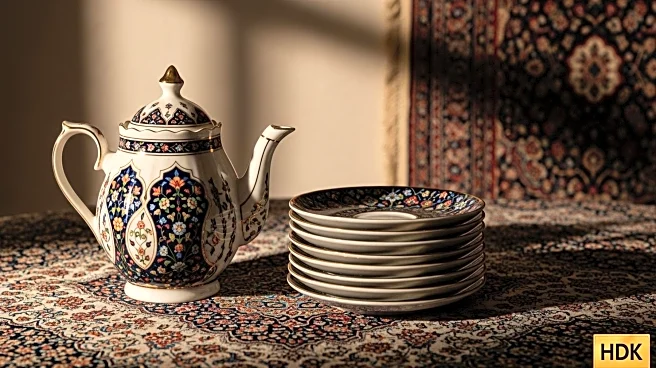What is the story about?
What's Happening?
A recent study highlights the challenges AI language models face in understanding Persian social etiquette, specifically the practice of taarof. Taarof involves a complex dance of offer and refusal, common in Persian culture, which AI models from companies like OpenAI and Meta struggle to navigate. The study, led by researchers from Brock University and Emory University, introduces TAAROFBENCH, a benchmark for evaluating AI's ability to handle these cultural nuances. The findings reveal that AI models often default to Western-style directness, missing the subtle cues essential for accurate interaction in Persian contexts.
Why It's Important?
The inability of AI to process cultural nuances like taarof underscores the limitations of current language models in global applications. As AI systems are increasingly deployed in diverse cultural settings, their failure to understand local customs can lead to misunderstandings and reinforce stereotypes. This gap highlights the need for more culturally aware AI development, which could improve cross-cultural communication and enhance the effectiveness of AI in international contexts. Addressing these challenges is crucial for the ethical and successful integration of AI technologies worldwide.
Beyond the Headlines
The study raises broader questions about the cultural biases inherent in AI development. As AI models are primarily trained on data from Western contexts, they may inadvertently perpetuate cultural hegemony. This issue calls for a more inclusive approach to AI training, incorporating diverse cultural perspectives to ensure equitable and respectful interactions. The research also emphasizes the importance of interdisciplinary collaboration, combining insights from technology and social sciences to create more culturally competent AI systems.















